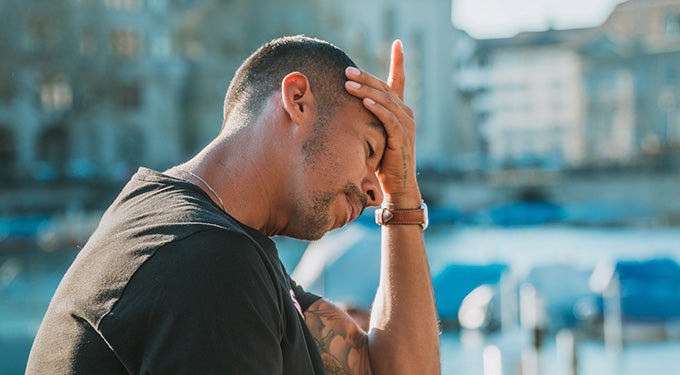

- 50 Things to Eat for Dinner When You Lack Inspiration or Don’t Feel Like Cooking
- 9 Ways to Say Grandma in Spanish
- In Search of the Honest Pint: A pint is 16 ounces – except (sometimes) when it’s a pint of beer
- The Legal Drinking Age In Ireland + 6 Irish Drinking Laws You Need To Know
- Bermuda Legal Drinking Age
Does your morning cup of coffee sometimes make you feel dizzy or nauseous? Does sipping on a cup of coffee cause lightheadedness?
If so, you’re not alone, there are a number of people who sometimes feel dizzy or sick after drinking coffee, and there is an explanation.
While we all metabolize and react to coffee differently, it’s probably one specific compound within the coffee that is leading to these sudden dizzy spells. It probably won’t come as a surprise to most people, but the caffeine content in your daily cup of coffee could be the reason you don’t feel well after drinking it.
Yes, there are many different compounds that make up your cup of coffee, but caffeine sensitivity is typically what leads to the feeling of dizziness or nauseousness after drinking a cup. But why would you suddenly have a reaction to your cup of coffee now, when you’ve been totally fine drinking it for years?
Why Does Caffeine in Coffee Make Me Dizzy?
Caffeine intake may not always cause you to feel dizzy or uneasy, but under the right circumstances you could experience feelings you’ve never felt before.
Caffeine is a stimulant that makes your heart beat faster while also causing your blood pressure to rise. Because of this, if you consume too much caffeine, or there are other changes to your body occurring, you may experience some unwanted side effects.
Some of the symptoms you may start to notice if you develop a sensitivity to caffeine can include the following:
- Dizziness
- Headaches
- Nausea
- Rapid Heartbeat
- Restlessness and Insomnia
- Anxiety or General Uneasiness
- Jitters
- Diarrhea
See more : Does Salsa Go Bad? Salsa Shelf Life Explained
These symptoms can happen after your first sip of coffee, or after years of daily drinking. Our bodies tend to change as we age, and certain factors may come into play as you get older that may not have affected you when you were younger.
Caffeine Sensitivity
The most common cause of dizziness when drinking coffee is related to caffeine sensitivity. This means that your body’s nervous system overreacts to the introduction of caffeine (a stimulant) as it is digested. This sensitivity can come from a number of things and not just genetics, although that is one of the causes.
Outside of a genetic predisposition to being sensitive to caffeine things like age and health conditions can play a major role.
If you already suffer from high blood pressure, anxiety, or reflux, then caffeine and coffee can exacerbate the symptoms associated with those issues and cause you to feel dizzy or lightheaded.
Certain medications that you are on, such as antibiotics, blood pressure medication, antidepressants, and others, can also interact with the caffeine and cause heightened side effects as well.
If you’ve noticed that you recently started experiencing dizziness after drinking coffee, then the first thing we would do is see if anything else in your life has changed. If you’ve started taking new medications or supplements, you can talk to your doctor about your caffeine intake to better determine if those might be causing some unwanted side effects.
Drinking Too Much Caffeine
In addition to caffeine sensitivity, there’s also a chance that you’re drinking more caffeine that normal and just don’t realize it.
Drinking excessive amounts of caffeine can also cause side effects that you may not have experienced before. So, take a second to think if you’ve consumed more coffee than you normally do in the span of a day or week to help determine if that could be causing you to become dizzy.
See more : Paprika vs Smoked Paprika: All You Need To Know
You could also be consuming caffeine from other sources in addition to your coffee and not even realize it. Some supplements have higher level of caffeine and when combined with coffee can make you feel sick.
Or maybe you haven’t drank a lot of coffee in a while and then decide one day to enjoy a large cup one morning. Your body may have lost its tolerance from the caffeine, which can also cause you to react differently than you normal might have while you were drinking it consistently.
Lifestyle Changes
Believe it or not, certain lifestyle changes could also be causing the caffeine and coffee to affect your body differently.
An influx of stress in itself can cause a feeling of uneasiness or jitters, and when combined with a stimulant like caffeine, it can enhance those effects and make you feel even worse.
The same goes with a lack of sleep. While caffeine is known to help people stay awake, it can also cause you to have disruptive sleep. Not getting a good night sleep, or being sleep deprived, can lead to dizziness, headaches, and lightheadedness on its own, so when you combine that with large amounts of caffeine, you may be making the issue worse.
Coffee and Your Health
While there are many health benefits that come from drinking coffee, caffeine doesn’t always agree with everyone.
As with all things, caffeine should be consumed in moderation. If you start to notice yourself feeling dizzy or lightheaded after drinking coffee, then you should take a look at your lifestyle and see if anything has changed recently. If you can’t easily find a reason as to why you may be reacting to caffeine all of a sudden, then it may be time to reach out to your doctor to get their opinion.
In some cases, switching to decaf coffee or limiting the amount of coffee you drink, will make the dizziness and nausea go away, but if it continues there may be something more serious going on that only your doctor would be able to help with.
Caffeine and coffee are a great way to get that extra pep in your step first thing in the morning, or during that after lunch lull, but your overall health is more important. Being aware of what caffeine can do to your body will help you be aware of any changes you may experience due to overconsumption or interaction with other medications or supplements.
Nigel Gildon editor:Nigel Gildon is the editor of Chef Wayne’s Big Mamou: Chef Wayne’s Big Mamou. He has worked in the publishing industry for many years and has a passion for helping new authors get their work into the hands of readers. 63 Liberty Street * Springfield, MA 01003
This post was last modified on 12/29/2023 7:21 pm
